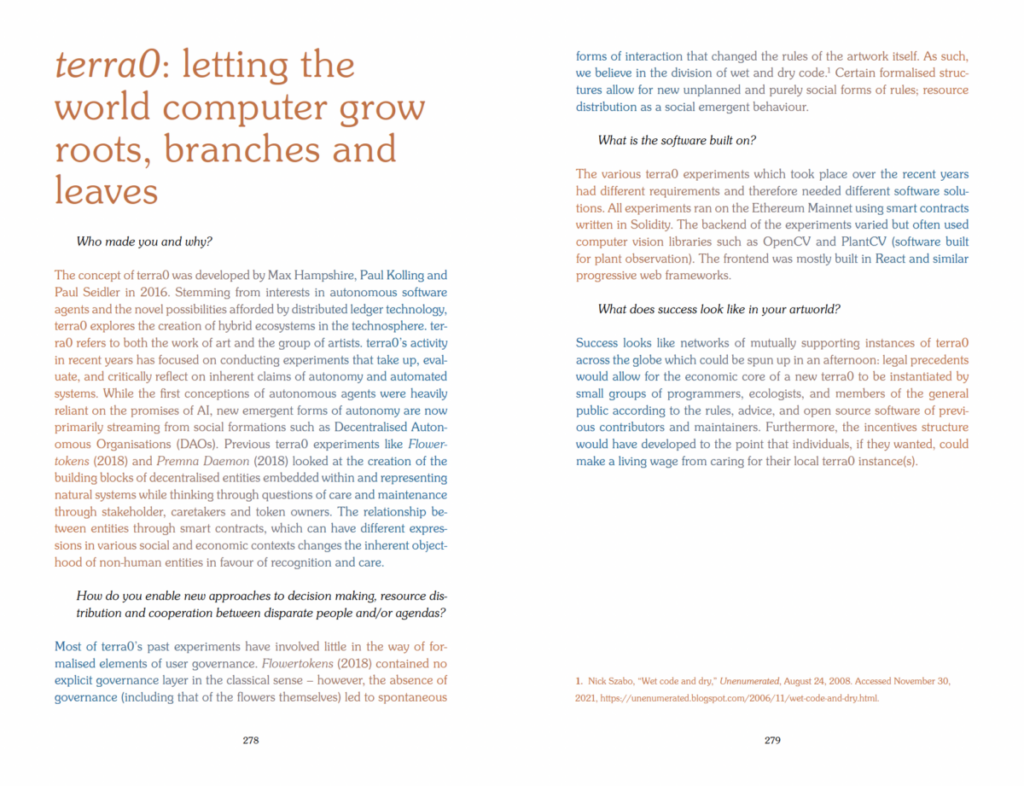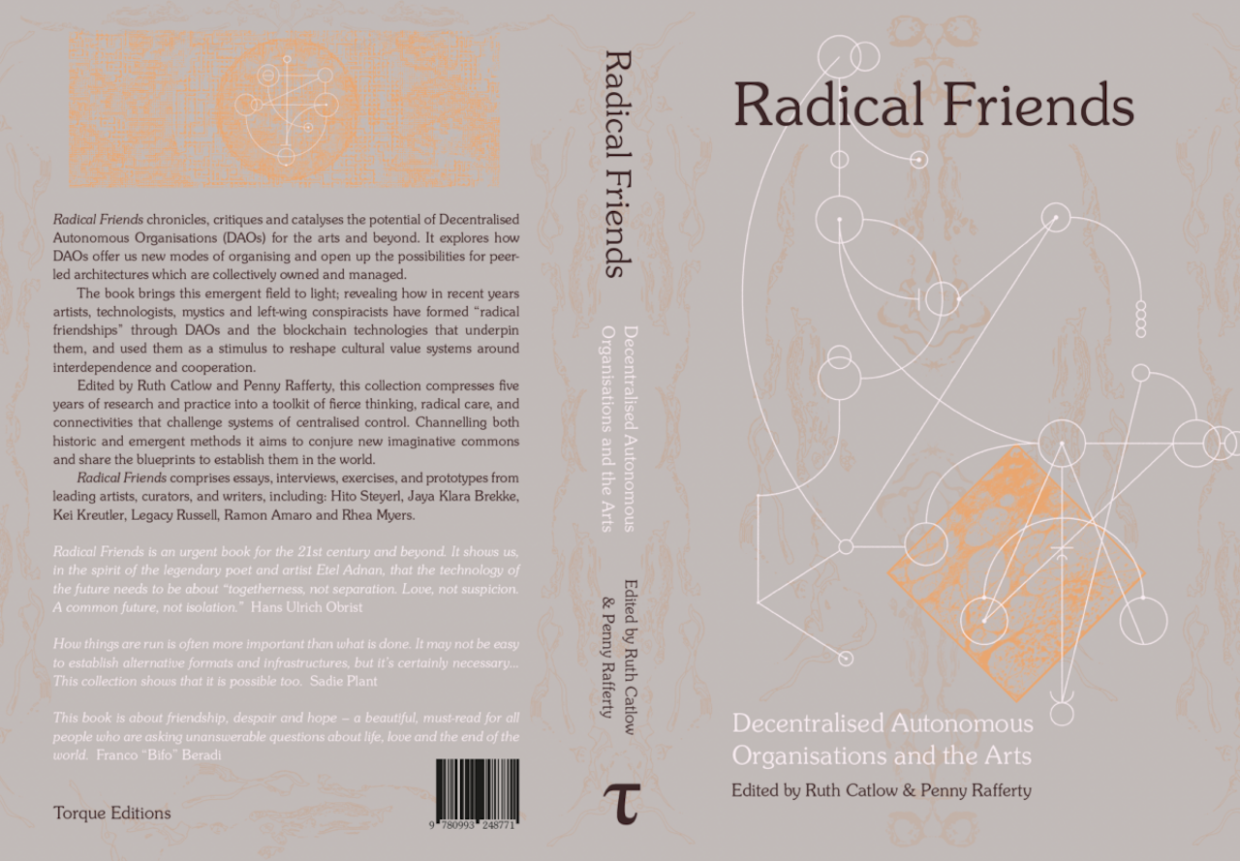A new book from Torque editions, Radical Friends — Decentralized Autonomous Organizations and the Arts, has consolidated eight years of research into a toolkit for radical care and connectivity in the art industry. Compiling essays, interviews, exercises and prototypes, the book has birthed “several of its own prototype artworld DAOs,” and has developed a “new vocabulary to talk with and about the multitude of artworld DAOs.”
Edited by Ruth Catlow and Penny Rafferty, the book shifts popular focus away from NFTs and looks at Decentralised Autonomous Organizations (DAOs) as imaginative, community-building tools. Offering contemporary takes to timelines of artist collectives that have mixed role-playing, cryptography, and occultism, the book holds that DAOs are clearly rooted in rich artistic history, merely changed in form.
As cultural institutions and others begin creating these spaces and communities like Arkive, Friends With Benefits, and Particle enter the popular imagination, it’s good to take a step back and really consider: what is a DAO, beyond the hype? The answer is both simple and complicated.
The contributors are many and the content is deep. If you only have time to browse, start here:
Practice Upwards, by Nathan Schneider:
Why is a DAO radical? Perhaps because it isn’t.
To say, as Schenider does, “friends are the original DAOs.” The formation of social groups on the internet — of their inner jokes, cliques, and everything in between — is providing the future bedrock of what DAOs are imagined to become: an “operating system for the next generation of human institutions.”
A Thousand DAOs by Rhea Myers:
Myers offers a good primer on the variety of DAOs existing today and their motivations.
Explaining the difference between Collecting, Artworld, Artwork, Theatre and Happening DAOs, and many more, Myers reminds us that “DAOs cannot make decisions without a human being.” However, as she argues, this doesn’t make a DAO their people, more than it changes any other social organization. She ends with a call to action: to produce DAOs “that are critical of space” and to do so in an “informed way that touches on the wider world in which they have evolved.”
Walk The Walk – Beyond Blockchain Orientalism by Hito Steyerl:
While Myers offers clear categories, Steyerl takes a different approach: confusion. “What is a DAO? No one really knows.”
Focusing on the future potential of these groups, Steyerl attributes the ambiguity of the DAO to their futurity. For her, DAOs “reflect shrunken social horizons,” and organize themselves as “tribes, clans, squads, cliques, mafias, cabals, unions, associations or cartels.” Steyerl also leaves us with a call to action — but more importantly, she leaves us with a set of questions: What are the consequences for public or civic spaces – or any ideas of public good or society as opposed to gated communities, cartels and private virtual real estate?
They’re unanswerable, for now.

The Artworld DAOs Speak by Ruth Catlow and Penny Rafferty:
Carlow and Rafferty give voice to the “machinic and animal spirits” of some of the earliest Artworld DAOs. A set of unreal interviews conducted with the DAOs themselves help these groups “escape their narrow confines” through acts of improvisation.
Each DAO was asked the same set of questions. Their answers demonstrate the multiplicity of identities, making it evident that each DAO knows exactly who it is.
To “Who made you and why?” Artworld DAO responded “My shapers believe in the discreet charm of the precariat. I am the material support of their dream. I am a digital soul.”
To “What is your superpower?” Black Swan said, “Cut off one head and two will grow.”
To “Whose interests do you serve?” Plantoid proclaims “I serve the interest of my own species.”
Praise
“For those sitting in between crypto-critical and crypto-curious for a progressive politics, this is one of the best collections of essays from some of the smartest minds in this space. There are no hypemen and also no gatekeepers, just our people.”
— The Blockchain Socialist
“Artworld DAOs are helping to rethink how communities apportion non-monetary value. They therefore serve a vital purpose at a time when NFTs are financialising creativity.”
— Alex Estorick, editor-in-chief RightClickSave



